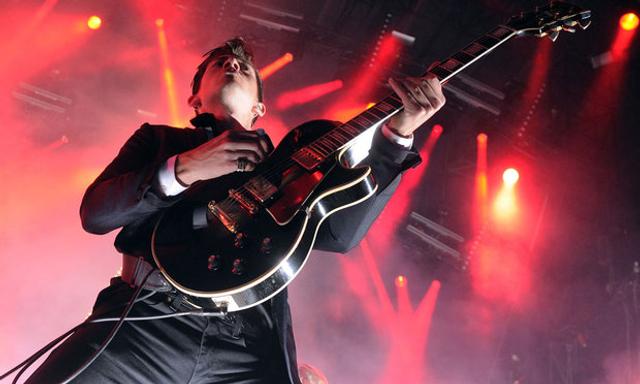So great was the impact that rockabilly had on the music landscape in its 1950s heyday that its impact still resonates loudly today in the worlds of music and fashion.
Of all the myriad music movements that have seized the public's attention over the last few decades, only a few of them remain identifiable by the look of those who listened to it. Punk had its mohawks, chains and ripped clothes. Disco had its body suits and bell bottoms. And Rockabilly? Well, its characteristics remain constant to this day: cuffed jeans, pompadours, biker jackets and white t-shirts (or some variation thereof).
As we examined in our last article, rockabilly was largely defined by the emergence of a certain Mr. Elvis Presley but this first iteration of the movement was diluted and ultimately killed when the recording industry tried to harness it for financial gain. Rockabilly became more of a peripheral movement, especially when the Beatles happened (though John Lennon was a huge fan) but it wouldn't be long before the leather and denim look would again be popularised and Elvis was one again integral to it.
Presley's 1968 comeback special saw The King clad out in his finest leather gear and, alongside other acts like Creedence Clearwater Revival, The Everly Brothers and films and TV shows like Happy Days and American Graffiti, a whole new audience was becoming exposed to the sounds from a generation before them. And they liked what they heard.
50s nostalgia was rampant in 1970s popular culture. Henry Winkler's 'Fonz' character from Happy Days expanded on the look and brooding character that Marlon Brando espoused in his movie 'The Wild One' but early episodes of the show were deemed too dark in nature and Fonz's character became more light-hearted and family-friendly, essentially mirroring the odd relationship the 1950s establishment had with the popularity of the rockabilly movement and, perhaps more significantly, what it represented. Production companies, record labels (and now hit television series') were falling over themselves to exploit the latest trends for their own gain but heaven forbid they'd actually show it for what it was.
The popularity of rockabilly came and went over the next couple of decades. It would be eclipsed by, say, disco but then a brand new spark would ignite public interest yet again and another revival would be underway.
More recently bands like Kings of Leon, The Black Keys and The White Stripes have carried the rockabilly torch in their own unique - and more subtle - ways. You just have to look to Arctic Monkeys' Alex Turner's coiffed hairstyle and fondness for denim and leather to see that rockabilly continues to flavour the styles of some of today's most popular music acts and, when you consider the far-reaching influence that this small music movement from the early 1950s has had on almost everything that's come after it, you can count on it being around for a whole lot longer.








































































